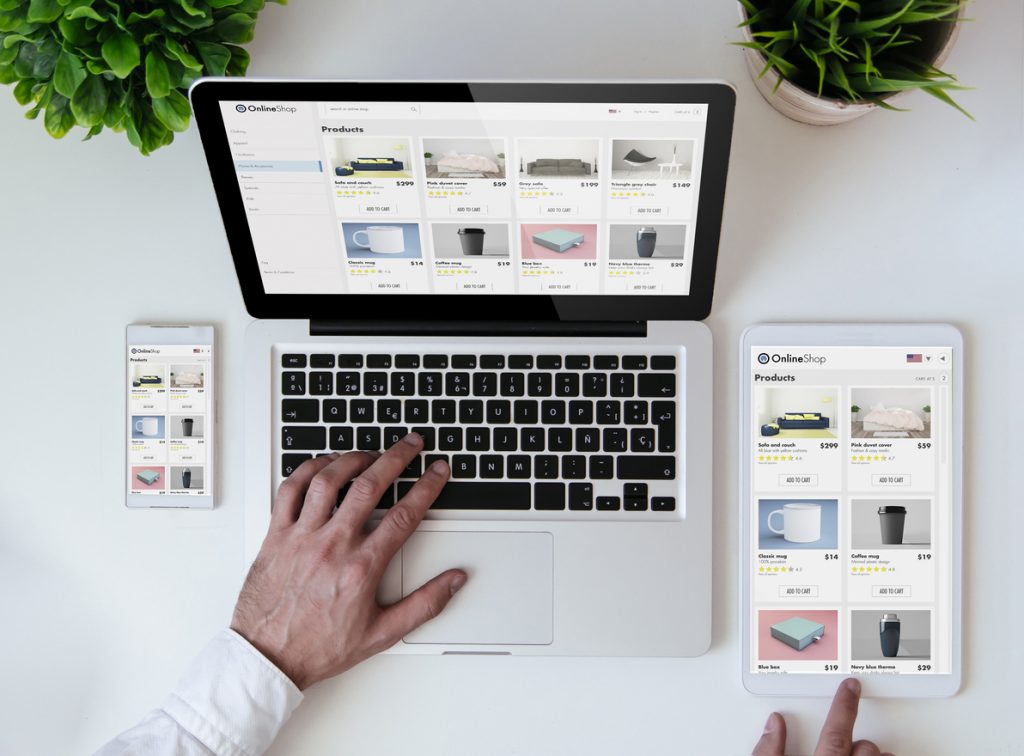During the COVID-19 pandemic situation, companies worldwide have shifted their business mostly to their eCommerce front, to stay the course and become effective, given the worldwide safety and restrictions. It is no secret that this kind of business shift positively affected eCommerce platform providers such as Shopify, Big Commerce, WooCommerce, Magento, and others in the marketplace.
Considering Shopify is the one of the top 5 major players in the eCommerce market in North America, we frequently get this question from clients and contacts, when discussion integration projects between Shopify and ERP/CRM:
“What is the best option to integrate the Shopify eCommerce store, is it to do it through any public app in the marketplace or through the private app?“
While this question is very generic, I will try to keep my explanation simple, with an emphasis on the pros and cons of both integration options. All this is based on our proven expertise in ERP integration to eCommerce platforms and other systems; Let me start by putting some definitions.
What is Shopify?
Shopify is a Canadian eCommerce platform company based in Ottawa (Canada), with a revenue of less than little less 3 billion US dollars as of 2020. Shopify is servicing companies and users around the globe, in providing a stable, intuitive, and solid eCommerce platform for eCommerce business.
For more information about Shopify as a company or offerings, you can always check their website
Why companies need integration to their ERP or CRM?
Companies of all sizes in today’s business reality are becoming very agile in using different means to process sales transactions and generate revenues. As an example, a typical company today in the service or retail industry will have several means to receive orders:
1. through a phone call where consumers or even B2B clients might call in, to place orders.
2. through the exchange of electronic business documents (EDI) a typical protocol mainly used by large retailers and distribution (B2B)
3. through one or multiple consumer based (B2C) eCommerce sites.

As you notice, there are different channels or protocols to communicate sales orders for that same company, which are typically through different systems (ERP, CRM, eCommerce site) and having their ERP as the main business system.
The process to consolidate all orders received from all the different sources, into one destination system (ERP or CRM), is called “integration”.
Having an integration and synchronization between an eCommerce site based on any of the known platforms of the marketplace (i.e. WooCommerce, Shopify, Big Commerce, Magento,…), and the ERP / CRM system of an enterprise (i.e. SAP, Oracle JDE, Microsoft Dynamics,….), will improve efficiency and productivity, and most importantly offer a better customer experience to their clients.
Read more about the most 3 important reasons for EDI integration with Shopify
What are the integration possibilities with Shopify?
Shopify offers several options to allow integration between an eCommerce site on its platform and other third-party systems, they are offered under two models:

a) Public Shopify apps
b) Private Shopify apps
both options are available for all Shopify subscribers. Let’s drill down and describe the difference between both integration options
a) Shopify public apps
Those types of applications (or apps) are most of the time activated per instance of Shopify, from within Shopify marketplace. Those apps can be purchased through a subscription paid annually or monthly, in return of its use.
Here are some of the characteristics of Shopify public apps:
- Public apps are publicly available on Shopify marketplace. They are sometimes developed by Shopify team, or a certified Shopify partner or developer.
- Most of the times, such apps do execute one and only one functionality (for example reading an inventory feed and updating the SKU available quantity in Shopify).
- You can find on the same marketplace, multiple apps, providing the same functionality, while it is developed by different professionals, and offered at different prices.
- Subscription to public apps is most of the times intuitive, quick, and requires little configuration for users with some level of expertise.
b) Shopify private apps
Private apps on Shopify, as per their definition are built for a single Shopify instance (or store). Shopify provides access to the underlying database through a REST API.
By selecting the option to build a private app to access Shopify, you will be given necessary credentials and security tokens to be able to read and write all the data objects available to you from your Shopify store.
Here are some of the characteristics of Shopify private apps:
- Not available for the public; only you can use it for your own store
- Not publicly available on Shopify marketplace.
- This type of private apps is developed by your integration partner, to access your own data.
- Your integration partner can develop integration flows that can sync in both directions multiple flows.
What is best a Shopify private or public app for integration?
While public apps are great applications, built by experienced developers, we have been seeing much better success when doing the integration between Shopify and a company’s ERP / CRM system using Shopify private apps. This conclusion is based on previous integration projects.
In previous projects, we were able to integrate Shopify orders, fulfillment, inventory with home grown ERP systems, and branded ERP / CRM systems such as Oracle JDE, SAP, Salesforce, Microsoft Dynamics….
Our integration flows are proven to be stable and mainly it does not conflict with different Shopify public apps active on the Shopify instance. In fact, most of the clients who use our integration services, they come to us, to solve the technological issues they face when they implement and use different public apps in their instance of Shopify.
Choose the best integration provider to integrate Shopify with your ERP or CRM
We, as a successful integration provider, have been helping our customers for 21 years quickly, reliably connect eCommerce to ERP or CRM and integrate it into business systems.
Contact us for a free consultation and we will help you choose the most suitable integration solution for your business.

